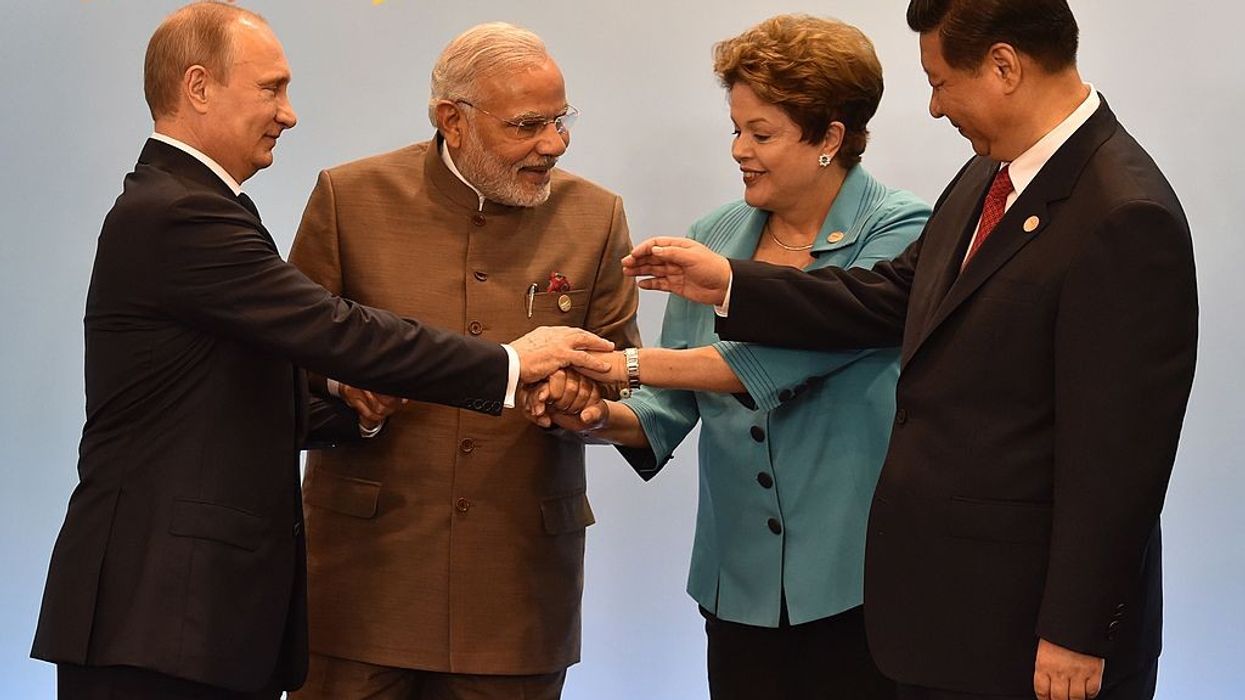THE New Development Bank (NDB) of the BRICS bloc has put all new transactions in Russia on hold citing the "unfolding uncertainties and restrictions", amidst the Ukraine crisis.
The NDB's move came a day after the Asian Infrastructure Investment Bank (AIIB) put on hold all its projects in Russia and its ally Belarus.
“The New Development Bank (NDB) applies sound banking principles in all its operations, as stated in its Articles of Agreement”, a statement by the bank posted on its website on Thursday (3) said.
“In light of unfolding uncertainties and restrictions, NDB has put new transactions in Russia on hold”, it said.
“NDB will continue to conduct business in full conformity with the highest compliance standards as an international institution,” it said.
The NDB was established by Brazil, Russia, India, China and South Africa (BRICS) to mobilise resources for infrastructure and sustainable development projects in BRICS and other emerging economies and developing countries.
On Thursday (3), the China-based AIIB put on hold all its projects in Russia and its ally Belarus.
The bank's decision was regarded as noteworthy considering that Russia is its third-largest shareholder behind China and India.
Former Reserve Bank of India governor Urjit Patel is the vice president for investment operations of the Beijing-headquartered AIIB. The bank is headed by former Chinese vice-minister for finance Jin Liqun.
"Our Bank is actively monitoring the situation and assessing its impact on AIIB's operations and our members' economies" as the Ukraine war unfolded, a press release posted on the bank's website said.
"We, the management, will do our utmost to safeguard the financial integrity of AIIB, against the backdrop of the evolving economic and financial situation," it said.
"Under these circumstances, and in the best interests of the Bank, Management has decided that all activities relating to Russia and Belarus are on hold and under review," the release said.
The bank has financed several projects in Russia and Belarus.
Explaining its decision to put the projects in Russia on hold, the AIIB said it is a multilateral organisation created by an international treaty, and adherence to international law lies at the very core of our institution".
"AIIB Management believes that multilateralism provides the best framework for countries to cooperate in dealing with common challenges and supporting development," it said.
"As the war in Ukraine unfolds, AIIB extends its thoughts and sympathy to everyone affected. Our hearts go out to all who are suffering," it said.
"AIIB stands ready to extend financing flexibly and quickly and support members who have been adversely impacted by the war, directly or indirectly," the release said.
"Economic spillover from commodity price shocks, financial market volatility and other factors may adversely impact our members' economic situation. We will work closely with our partner multilateral organisations to provide any needed support expeditiously," it said.
On Wednesday, the World Bank announced that it will stop all its programmes in Russia and Belarus with "immediate effect" in response to Moscow's military operations in Ukraine and "hostilities" against the people of the war-torn country.
A large number of countries, organisations and businesses are severing ties and have imposed sanctions on Russia over the country's invasion of Ukraine, and with Belarus for its support and cooperation with Moscow.
India’s largest bank, SBI, has also stopped transactions related to Russian entities under sanctions.
(PTI)




